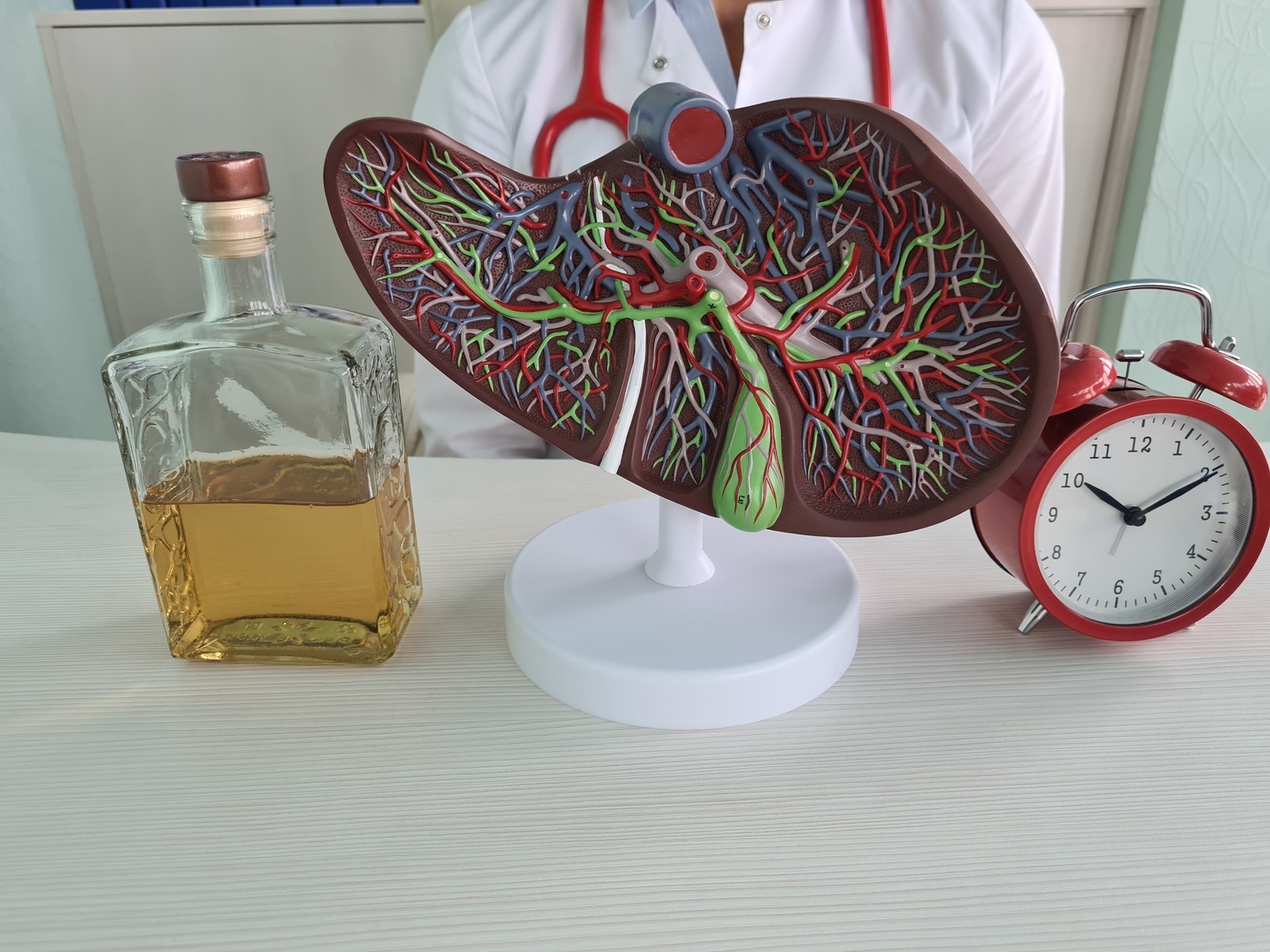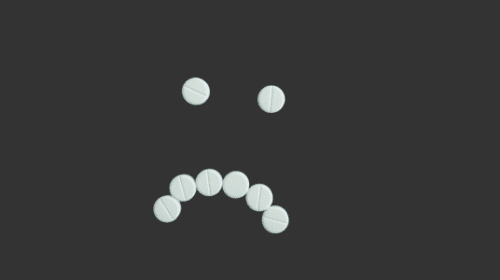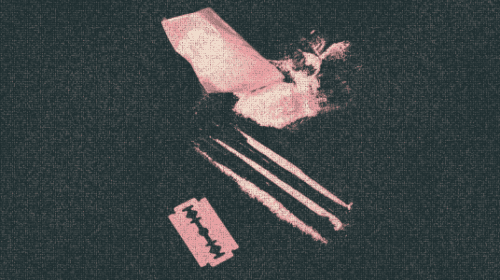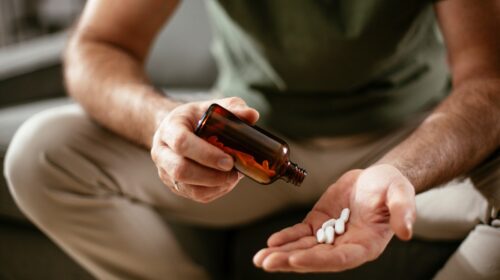Sudafed (pseudoephedrine) is a commonly used nasal decongestant that treats common cold symptoms and sinusitis. It’s often considered safe because it’s widely available in pharmacies (behind the pharmacy counter). However, Sudafed and other pseudoephedrine drugs can have interactions with alcohol and other substances.
Learn more about combining Sudafed and alcohol, Sudafed misuse, and other precautions you should be aware of.
What Is Sudafed?
Sudafed is a brand name for pseudoephedrine, a drug used to treat nasal congestion and symptoms of the common cold. Pseudoephedrine is in the alpha-adrenergic agonist class of drugs, which stimulate the alpha-adrenergic receptors. This action constricts the blood vessels, acting as a decongestant.
There are several brands of pseudoephedrine, some of which contain additional ingredients like acetaminophen or naproxen to treat additional symptoms of colds and sinusitis.
Though it may be necessary to get a prescription in some cases, Sudafed is available over the counter to treat the symptoms of the common cold, flu, sinusitis, and bronchitis. However, because of its stimulant effects, Sudafed may be misused recreationally or as a precursor in the illegal production of methamphetamine.
In 2006, the FDA moved Sudafed’s decongestant and pseudoephedrine products behind the pharmacy counter to prevent misuse.[1] It’s still available in stores without a prescription, but this limits bulk or suspicious purchases. Pseudoephedrine purchase limit laws vary by state in 2024.[2]
Sudafed and Alcohol
While specific interactions between Sudafed (pseudoephedrine) and alcohol may not be prominently highlighted, combining these substances can lead to potential side effects and risks. It is important to exercise caution and be aware of how the combination can affect you. Possible side effects combining pseudoephedrine) and alcohol include:
- Masked effects: Sudafed is a stimulant. When you combine it with alcohol, it can mask the feeling of intoxication.[3] You may consume more alcohol than intended, increasing the risk of injuries or alcohol poisoning.
- Dizziness and drowsiness: Alcohol can interact with Sudafed and may cause drowsiness or dizziness that can be dangerous.
- Weakened immunity: Drinking excessive amounts of alcohol at once can negatively impact your immune system for up to 24 hours.[4] If you’re taking Sudafed to treat a cold or infection, drinking alcohol with it can slow your healing time.
- Reduced effectiveness: Alcohol consumption can reduce the effectiveness of Sudafed for nasal congestion.
How Soon Can I Drink Alcohol After Taking Sudafed?

If you want to avoid the potential side effects of mixing Sudafed and alcohol, it’s best to wait until the drug completely clears your system before drinking alcohol. Sudafed has a half-life of 3 to 16 hours, which is the time it takes for the drug to be eliminated by the body.[5] However, there are stronger versions of Sudafed:
- Sudafed Sinus 12-Hour Pressure + Pain stays in the system for about 12 hours, then is eliminated over the next 5 or 6 hours. It’s best to wait 20 hours or longer to drink alcohol after consuming Sudafed 12-Hour.
- Sudafed Sinus Congestion 24-Hour is a higher dose than the 12-hour or quick-release Sudafed formulations. The drug is designed to release over 24 hours, then may take 5 or 6 hours to eliminate from the body, so it’s best to wait 30 hours or longer to drink alcohol after taking it.
Other Potential Sudafed Interactions
Sudafed, containing pseudoephedrine, a stimulant, can interact with various substances, including prescription medications, over-the-counter drugs, and illegal drugs.
These interactions can amplify side effects or lead to serious health risks.
- Opioids: Combining a central nervous system depressant like heroin or hydrocodone with a stimulant like pseudoephedrine can mask the effects – much like alcohol – leading to drowsiness or severe respiratory depression.
- Stimulants: Mixing Sudafed with another stimulant like amphetamine or cocaine can amplify the effects, leading to a dangerous rise in heart rate, blood pressure, and temperature. The risk of heart problems, stroke, anxiety, paranoia, and hallucinations is also increased.
- MDMA: Sudafed and MDMA, or ecstasy, is a combination of a stimulant and serotonergic drug. Mixing them can increase the stimulant effects, increasing the risk of dehydration, heart problems, and hyperthermia. It can also cause serotonin syndrome, a potentially life-threatening condition in which too much serotonin builds up in the brain.
- Decongestants: Sudafed shouldn’t be combined with other drugs that contain pseudoephedrine, phenylephrine, or other decongestants, as it can increase the risk of side effects like high blood pressure and heart rate.
- Caffeine: Combining Sudafed and caffeine can increase the heart rate. Be careful not to consume drugs that contain caffeine or drink excessive amounts of coffee while taking Sudafed.
- Monoamine oxidase inhibitors (MAOIs): MAOIs are an antidepressant class that treat depression and nervous system conditions. Combining Sudafed with MAOIs can lead to a dangerous rise in blood pressure.
- Tricyclic antidepressants (TCAs): TCAs are used to treat depression and anxiety by increasing the availability of specific substances in the brain, including norepinephrine. Combining TCAs with pseudoephedrine can cause elevated blood pressure and an irregular pulse.
- Phentermine: Phentermine is an appetite suppressant with stimulant effects, such as a rapid heart rate. it may interact with pseudoephedrine and cause a rise in the heart rate and blood pressure.
- Linezolid: Linezolid is an antibiotic prescribed to treat bacterial infections, but it can have characteristics like MAOIs and may interact negatively with pseudoephedrine.
Alternatives to Sudafed
While phenylephrine is an alternative nasal decongestant available over the counter, its effectiveness compared to pseudoephedrine is debated among healthcare professionals. Phenylephrine is used to relieve nasal discomfort caused by colds, allergies, and sinusitis, similar to pseudoephedrine.
It’s widely available over the counter at most pharmacies, unlike pseudoephedrine, which requires a government-issued ID to purchase.
Another option is antihistamine, which may treat the symptoms of allergies or a common cold. While antihistamines can’t cure a cold or sinus infection, they can temporarily relieve symptoms.
Is Sudafed Addictive?
Sudafed, containing pseudoephedrine, is regulated due to its potential for misuse, including being a precursor in the illicit production of methamphetamine, rather than being classified as a controlled substance. While not typically associated with addiction in the conventional sense, pseudoephedrine’s stimulant effects can lead to misuse. Pseudoephedrine acts like a stimulant in the brain, increasing energy, blood sugar, blood pressure, and heart rate.
People may misuse Sudafed for non-medical purposes like reducing appetite, staying awake longer, improving concentration, or enhancing athletic performance.
There are risks associated with misusing drugs like Sudafed, especially in high doses or for long periods. Misuse of Sudafed can raise blood pressure and may cause heart problems. It’s possible to overdose on Sudafed as well, which can have symptoms like insomnia, hallucinations, chest pain, sweating, euphoria, and difficulty urinating.
The warning signs of Sudafed misuse or addiction are similar to an addiction to any other substance:
- Intense drug cravings
- Problems with work or personal life
- Unsuccessful attempts to quit or cut back on drug use
- A need to take more of the drug to get the same effects (tolerance)
- Withdrawal symptoms when you stop using the drug
Get Help for Sudafed Addiction or Polysubstance Abuse
While most people take Sudafed without problems, all medications come with risks. If you or a loved one is struggling with an addiction to Sudafed or multiple substances, drug addiction treatment centers offer help and hope to get on a healthier path.

























